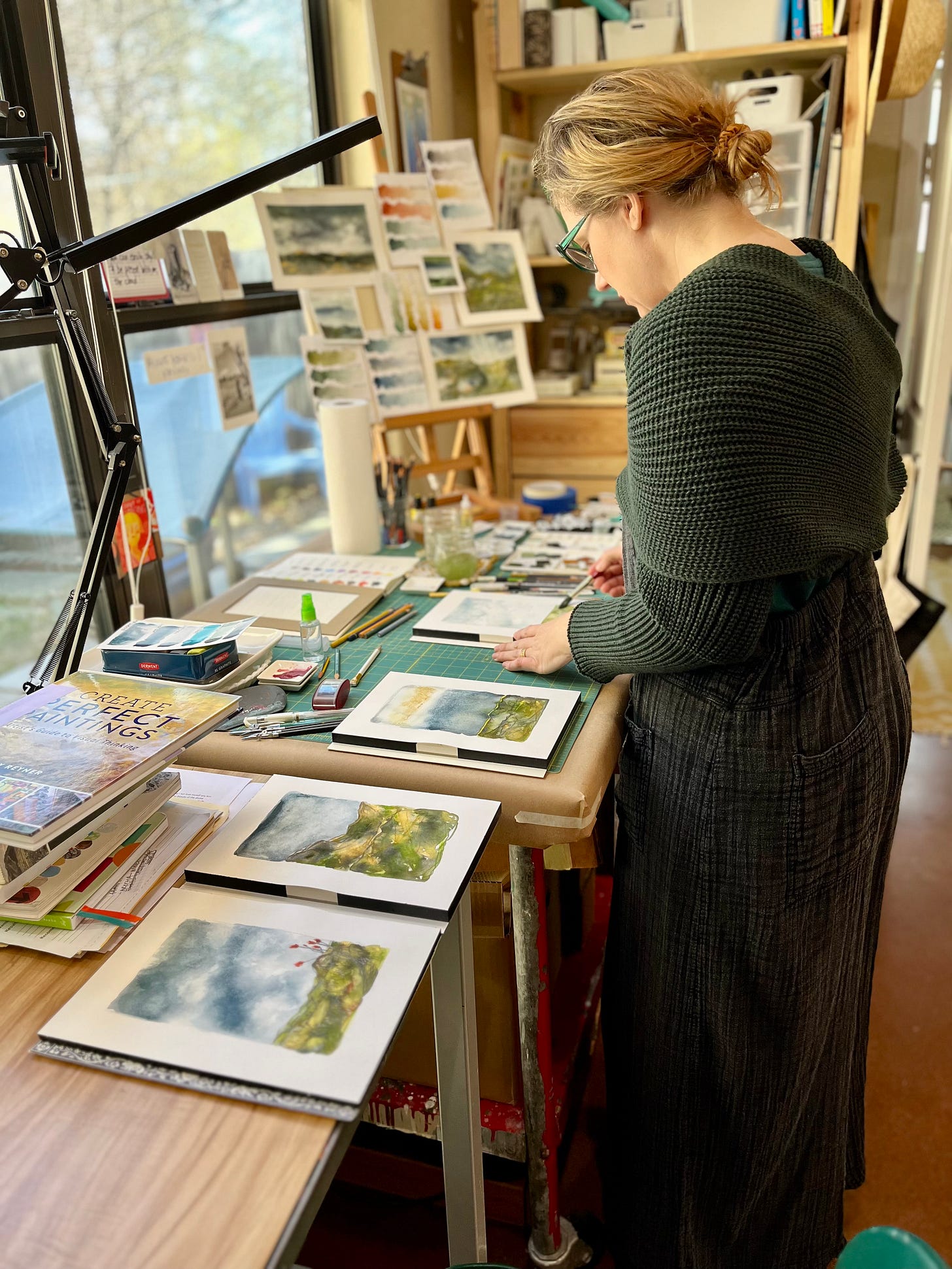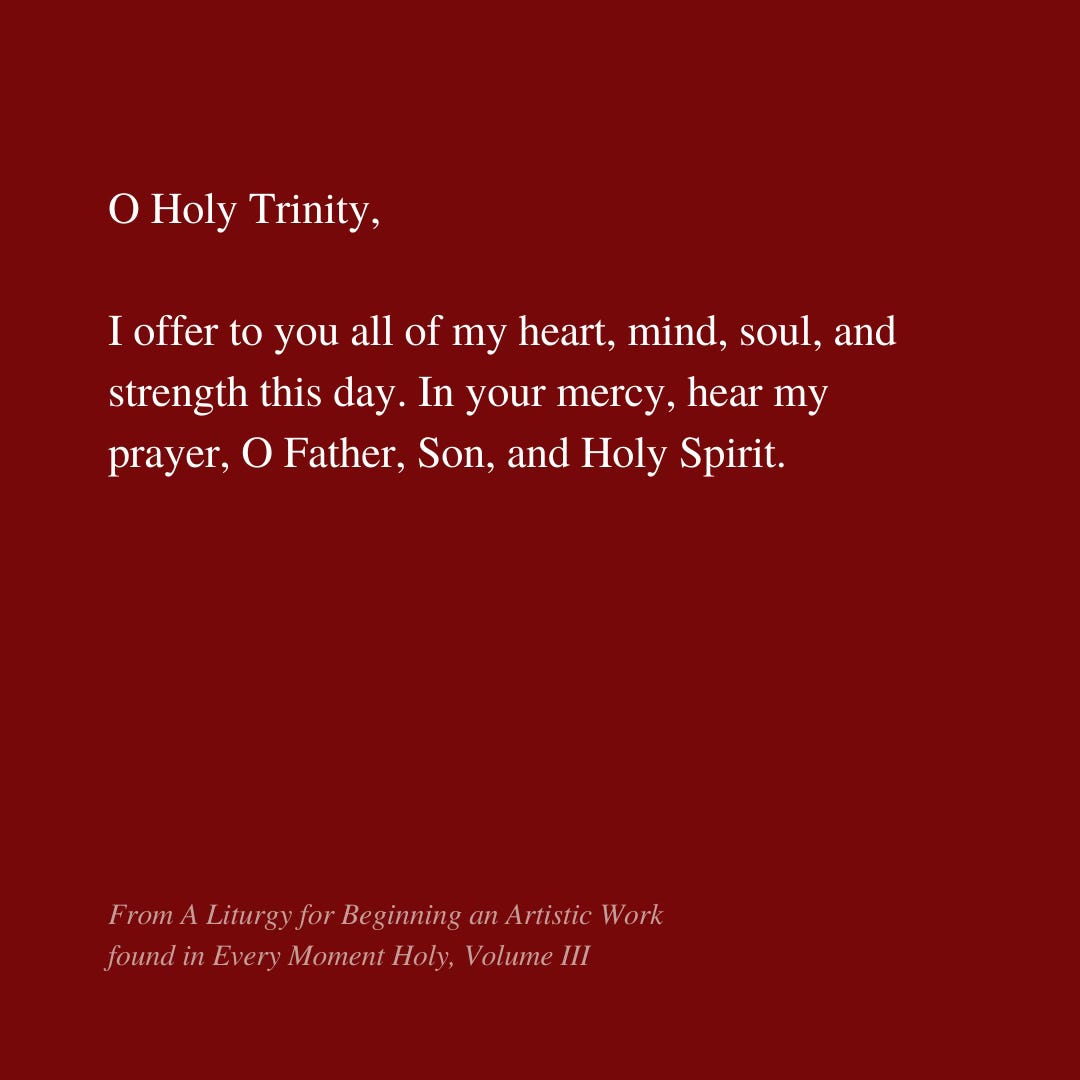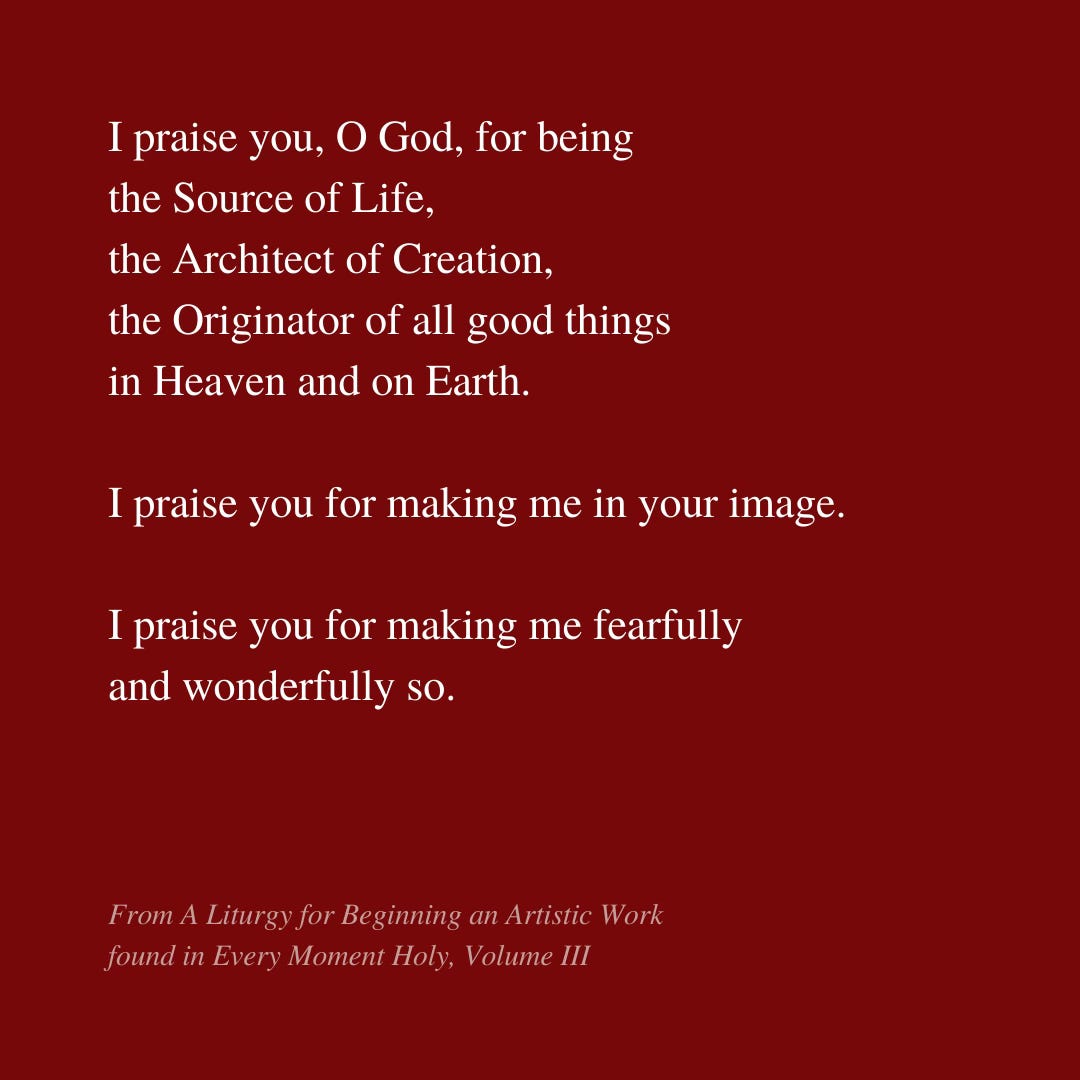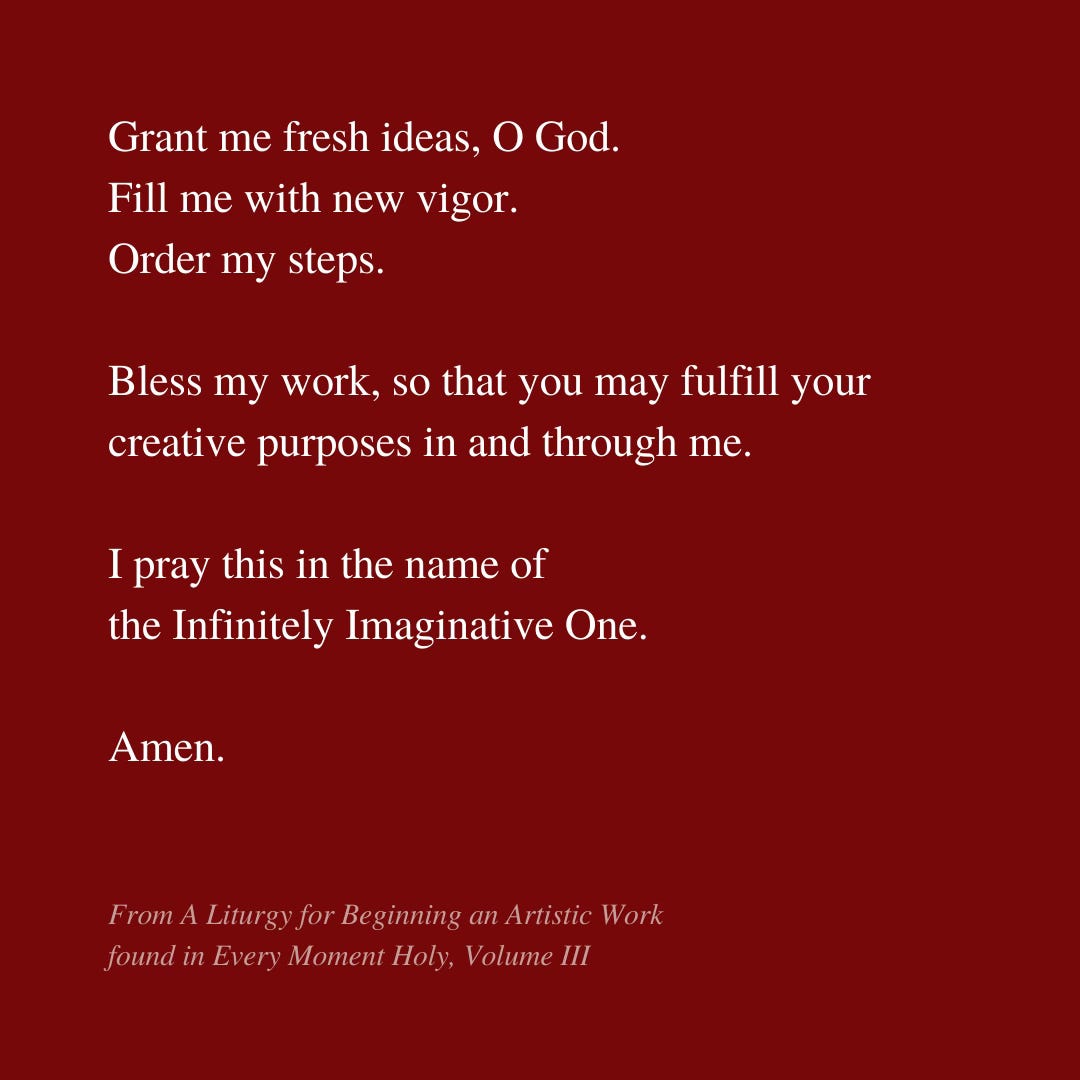
Today I officially began writing my book on the vocation of artists for Brazos Press.
Beginnings, I find, are often the hardest with a writing project, because you actually have to say something, and that first something may be complete rubbish, or fight you, or make you think none of it is going to be good.
But you have to start somewhere, and in order to do that you have to turn off your judgey brain so you can do what you know you can do: write.
I’m an inveterately slow writer, however, and my memory is leaky, which means that I have to re-read things a thousand times seemingly in order to keep it in my head. I’m also a slow reader. So there’s that.
I also typically spend two hours every morning getting my kids off to school. This includes getting breakfasts and lunches ready, uniforms on, and then 1.5 hours traveling back and forth to their school. (We live in the country, after all.) This chunk of time seems always to threaten the rhythm of my work day. It’s hard to get my brain back in gear. But I’ve recently found a way to work with rather than against this morning routine by listening to podcasts, which I never did living in the city itself.
Teaching and grading full-time, moreover, leave me spent by day’s end, on top of running committees, answering emails, attending faculty meetings, and the rest. (Nobody told me in my doctoral program how many hours I’d spend as an academic attending and running committees. I’d love to sue somebody for malfeasance, because it’s such a shock to the system, but I don’t think the ethics committee would allow it.)
Beyond that, we’ve got 21 acres of land to tend (which is amazing) and there are always projects that require our attention (which, I’m discovering, is resulting in a marvelous feedback mechanism for my intellectual work).
I preach semi-regularly at my church (which is also amazing), and crafting a sermon usually involves a great deal of time and care. Normally I start working on the sermon weeks in advance because I have to sneak it into the cracks of my work schedule. I sometimes voice record parts of my sermon while sitting at stoplights, because illustrations often jump into my head unannounced. But still. Writing a sermon is work, and because it’s work worth doing well, it takes up time in the schedule.
All this being said about the challenges that I face writing, I do love to write, I don’t give up easily, and I know how to put one brick on top of another. In practice, it means I wake up before 5AM and I write something before I wake the kids.
Something is always better than nothing, I remind myself, and as I say in the book, that something begets something else which, in certain cases, may beget something truly wonderful.
Boundaries are also good. I write for as long as I can before waking the children and, upon my return from the kids’ school, I write for another hour without interruption. If I’m hitting a deadline, I’ll write for another two or three hours, which is about as much as my brain can handle in one sitting.
I also pray.
I pray not because I think it’ll magically make my writing better. (That’s not how prayer works.). I pray because it’s a way to remind myself that my life is not my own to do with as I please and that everything is a grace.
I pray as a way to commend my work to the God who remains sovereign over its outcome (which is rarely as I imagine it in advance).
I pray because it settles my heart, grounds my body, and rescues my brain from an anxiety-induced obsession “to make the most of my time” which often produces a short-fused and ill-tempered disposition.
I wrote this liturgy for “Beginning an Artistic Work” for Volume 3 of Every Moment Holy. I wrote it chiefly with artists in mind, but secondarily for creative peoples, including those people who write for a living and for the love of it. I wondered specifically what might help my artist wife begin her work well and I asked for her input with the different drafts of this quintessentially long-form prayer.

Its structure is theologically deliberate. It begins with an invitation to silence, it follows that silence with a call to praise, it transitions to a series of petitions, and it ends by naming each Divine Person in trinitarian-specific fashion.
It’s a longish prayer, which means some people may not bother to pray it, because it might feel too long. I debated whether to give the reader the option to pray a shorter version of the liturgy, as I did with my liturgy for “Beginning the Study of God.” Short prayers have their place in our spiritual lives. In fact, I wrote a whole book-full of such prayers, because I believe they perform a uniquely salutary work.
But I decided to keep this particular liturgy long because I felt there was something good about a prayer requiring something of us, as it does, for instance, for icon writers.
Living in an attention deficit economy such as ours, where time is “calculated,” “spent” or “lost,” and, above all, “money,” it seemed like a good idea to fight this distorting mentality with a prayer that could re-orient our sense of time.
You can read the whole liturgy here, and even print out a PDF version of it. A heartfelt thanks to the EMH team for their encouragement along the way and to Ned Bustard for his beautiful artwork that accompanies the liturgy.











